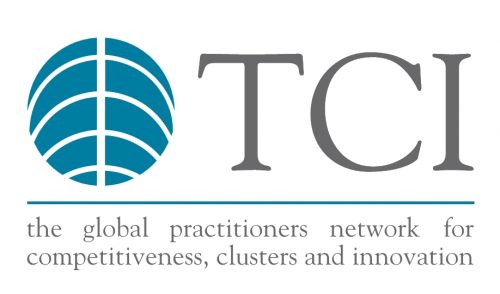
19/10/2016
Christian Ketels: “Thanks to clusters, Catalonia is much more attractive to foreign companies”
Christian Ketels: “Thanks to clusters, Catalonia is much more attractive to foreign companies”
Specialist in cluster policy Christian Ketels joined the 9th annual Catalan clusters meeting hold last month in Barcelona. In an interview with the Catalonia Trade & Investment public agency that works to attract foreign direct investment, he explained the importance of cluster policy in the attractiveness of the region.
Christian Ketels comes from the Institute for Strategy and Competitiveness (Harvard Business School) and is the President of TCI Network, a global platform of experts and organizations on clusters, innovation and competitiveness headquartered in Barcelona.
According to his definition, a cluster is a hotspot of activity in a certain type of sectors. It combines two aspects: it is a group of related industries -not just one sector- and is geographically concentrated.
In his opinion, Catalonia started with cluster efforts earlier than many other parts of Europe, and is globally seen as one of the leaders in this field. And it is still one of the regions that come up with new approaches, for example on using clusters as a platform for internationalization. Today, with more than 20 years of experience in cluster policy, in Catalonia 30 clusters are home to 1,700 firms, accounting for a turnover of 65 billion euros.
In Christian Ketels opinion, Catalonia actually is much more attractive to foreign companies (6,500 are currently set up in Catalonia) thanks to its clusters because they immediately get into an ecosystem of partners rather than just a greenfield site to invest in.
Christian Ketels comes from the Institute for Strategy and Competitiveness (Harvard Business School) and is the President of TCI Network, a global platform of experts and organizations on clusters, innovation and competitiveness headquartered in Barcelona.
According to his definition, a cluster is a hotspot of activity in a certain type of sectors. It combines two aspects: it is a group of related industries -not just one sector- and is geographically concentrated.
In his opinion, Catalonia started with cluster efforts earlier than many other parts of Europe, and is globally seen as one of the leaders in this field. And it is still one of the regions that come up with new approaches, for example on using clusters as a platform for internationalization. Today, with more than 20 years of experience in cluster policy, in Catalonia 30 clusters are home to 1,700 firms, accounting for a turnover of 65 billion euros.
In Christian Ketels opinion, Catalonia actually is much more attractive to foreign companies (6,500 are currently set up in Catalonia) thanks to its clusters because they immediately get into an ecosystem of partners rather than just a greenfield site to invest in.
More news
09/02/2017
Hepatitis C Under the Watchful of ALBA Synchrotron
02/02/2017
The Barcelona Entrepreneurial Spirit Attracts Important Rounds of Funding
26/01/2017
SENER, 50 Years In Space!
19/01/2017
Barcelona Synchrotron Park Even Closer
11/01/2017
ALBA Synchrotron Is Also a Tool for the Environment
05/01/2017
Barcelona & Catalonia Startup Hub, the Catalan startups showcase









